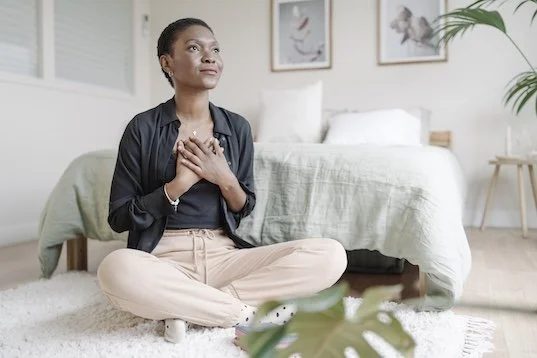5 Easy Ways to Add Gratitude to Your Day
Gratitude is more than just saying “thank you.” It’s about appreciating the good things in life, even the small ones. When you make gratitude a daily habit, it can boost your mood, relationships, and even your health!
Practicing gratitude can help improve sleep, mood and immunity, and can decrease depression, anxiety, chronic pain and disease. You don’t have to know how gratitude can create changes in your body and mind to receive them. Simply start adding it to your daily routine with the tips below and experience the benefits firsthand. [1,2]
Start a gratitude journal. Every day, write down three things you're thankful for. These can be big things, like your family, or small things, like a sunny day. Over time, this habit can shift your focus to the positive.
Say “thank you” more often. Make it a habit to thank the people in your life. Whether it's a co-worker, friend, or family member, taking a moment to express thanks can make both of you feel better.
Reflect at the end of the day. By the end of the day, you’ve hopefully racked up at least one or two moments worth your gratitude. A first sip of coffee, a smile from a stranger — nothing is too small to earn gratitude. Before bed, take a few minutes to think about the best part of your day. Reflecting on positive moments helps you end your day on a good note and promotes better sleep.
Practice gratitude in relationships. When another person does or says something that makes you feel grateful, express it! Sharing gratitude can boost both your mood and your experience connecting with other people.
Use gratitude reminders. Gratitude, like any other habit, can be easy to forget. Set a nightly reminder to reflect and consider adding one or two more daily reminders to pause and be grateful. Whether you call to mind what you’re grateful for or write it down, these little moments can make a big difference in your overall well-being.
Research has shown that practicing gratitude is associated with many positive mental and physical effects, from better sleep to lower blood pressure. One of the main ways gratitude works to support well-being is by balancing out the natural tendency to focus on negative information as a protection against pain. While we can’t control how our brains are wired, we can use practices like gratitude to offset negative mental habits with positive ones. Commit to your gratitude practice today! [1,2]
Gratitude is good medicine. American Heart Association.
Thankfulness: How Gratitude Can Help Your Health. American Heart Association.

